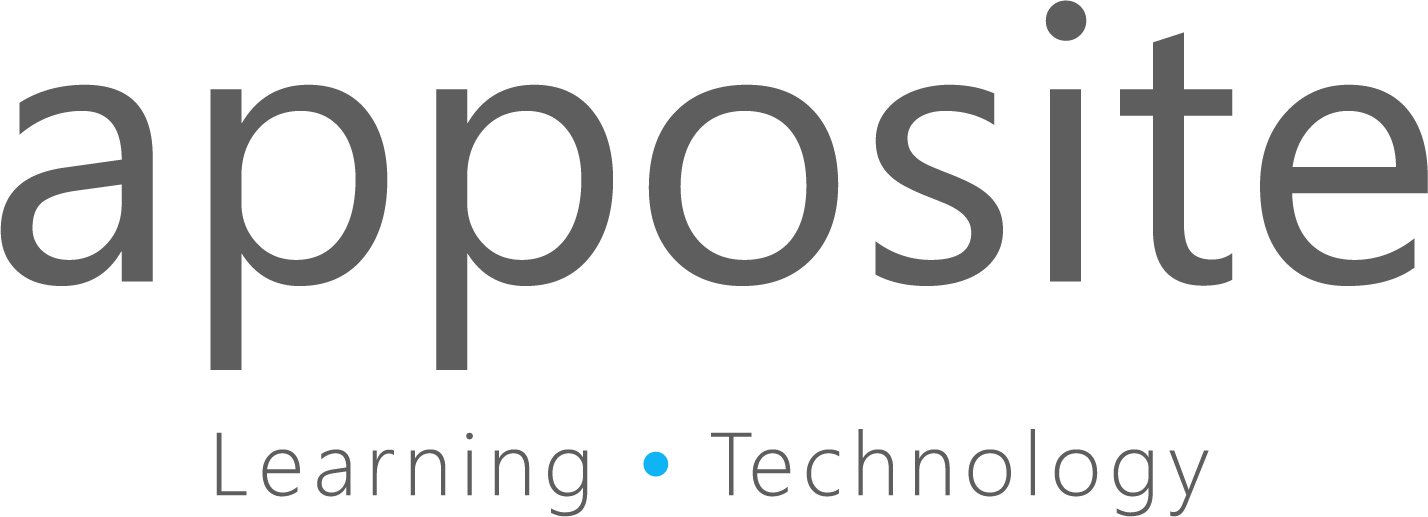The Growing Relevance of Digital Training

In this postmodern world, people have come to expect personalization or customization in every aspect of life. This includes all the objects, experiences, aspects, etc. that are a part of their lifestyles. Training is no different, whether it is directed either towards personal development or professional development.
The traditional mode of training, i.e. the classroom training, requires the trainees to restrict themselves to a four-walled classroom setup and is not a cost and time effective method for imparting training. Nowadays, people prefer training which:
- is cost and time effective,
- does not confine them to a classroom,
- is flexible and is aligned to their role and interest,
- is meaningful and relevant.
This is where the ‘digital training’ comes to the rescue. Digital training, as the term suggests itself, is a kind of instructional method that uses digital media to deliver the content to the trainees. It thoughtfully integrates technology into the learning content, making it more engaging for the audience. It follows the anytime, anywhere approach to learning, and can be easily fitted into one’s busy schedule.
It can take the form of:
- Web-based Training (WBT) or e-learning
- Virtual Instructor-led Training (VILT)
- e-books
- MOOCs
- Augmented Reality
- Virtual Reality
- Mobile Learning
Why is Digital Training important?
Irrespective of its type, all the training processes incur a considerable cost, some more than the other, on the organization. They also require the trainees to dedicate their time to complete it effectively. And, in this era, time is money. To make the training worthwhile, organizations are moving towards digital training. It makes use of a broad range of technology-enhanced strategies that enhance the overall learning experience of the learners and also saves them a lot of time.
Some of the other benefits include:
- It is self-paced.
- It can be tailored according to learners’ requirements.
- It extends learning opportunities worldwide.
- It provides the learners with better engagement with the content, and deep learning.
- It allows continuous feedback allowing the learners to track their progress.
- It provides a flexible learning environment where the content can be updated and contextualized depending upon the continuous assessment.
Evaluation of training outcomes is a very important part of the whole training process as it is a clear indicator of not just the success of the training intervention but also the return on investment (ROI) for the organization. But, in a traditional in-classroom mode, evaluation consumes a lot of time and effort as it most often than not ends up being a manual effort. Digital learning also helps organizations to easily and instantly collate key data points on the performance of the learners. It makes it easier for organizations to track their employees’ progress and performance.
Learning Management System (LMS) and Digital Training:
Any educational material consumed online is digital learning. But, in an organization, where the employees need to undergo training, it isn’t sufficient if the training module is uploaded online and the employees to whom it is directed are just asked to finish it. To ensure the successful completion of any training, employees’ performance needs to be tracked and assessed. This is where a Learning Management System(LMS) steps in.
An LMS is a software application on which various e-learning courses are uploaded. The LMS hosts the course, and tracks and reports learners’ progress and performance. An LMS aids the learners in interacting with the content and more recently, with other learners.
Massive Open Online Courses (MOOCs) and Catalog Courses:
MOOCs are online courses that aim at unlimited participation of the learners. These courses are open for everybody and can be accessed via the web. These can cater to the needs of individuals irrespective of their level. They cover a wide range of topics. MOOCs are more like distance education programs, but they do not align well with organizational goals.
For example, individual A wants to enter the IT world but lacks the skills required to get that specific job. So, A decides to take an online course that might help him to acquire the required skill set and will fetch him a desired job in the IT industry. A’s motivation is not related to the needs of any specific organization.
On the other hand, catalog courses target users in organizations, focusing on subjects such as legal compliance, language skills, etc. The courses in the catalog are sometimes referred to as ‘Off-the-shelf (OTS) courses’. Many organizations purchase licenses to catalog courses to meet their training needs. Although these courses are quickly implementable, in fact, they may lack relevance to an organization’s culture and processes.
Customized Training:
To overcome the shortcomings of catalog courses, customized training is an option. It puts aside the ‘one-size-fits-all approach. It targets specific organizational goals and improves business performance through employee development. Custom training aligns the learning objectives to the business goals to make the learning experience more meaningful. It ties the objectives to real-life job scenarios which, in turn, motivate the employees to apply the learning.
The new business challenge may be of considerable importance or worth. For instance, a company decides to adopt a new product for its HR Operations. It will require training the employees on the product: its features and usage. So, it will require a custom training curriculum.
Therefore, customized training can be imparted for a new product, compliance, sales process, leadership, soft-skills training, etc. It targets these unique challenges or particulars faced by a company or an organization.
Apposite Learning Solutions provides customized learning solutions to impart training to the employees of the client organization to accomplish their specific objectives. These solutions are designed by learning experts, using the latest developments in e-learning and IT to make the training engaging and interactive.
While developing the courses, we follow the ‘fit-to-need’ approach to generate real business results. Our team digs thoroughly into the client’s business challenge(s) and works with their concerned SMEs and analysts to identify the motivations, skill-sets, etc. that need to be adjusted for a successful change in the behavior.

Apposite Learning Solutions has successfully delivered a customized training curriculum for one of the largest healthcare IT solution providers for the US Medicaid program. The healthcare management application had to be migrated from a legacy system to cloud. There was a need to train the end-users for them to adapt to a cloud-based application.
The end-users were in different roles, had different responsibilities, and were based in different locations. The base version of the application was customized as per the requirements of the individual States, thus, requiring multiple versions of the training. While the application was in its development stage, our team contacted the business analysts at the developer’s end to understand the application and its development process thoroughly.
At the client’s end, our team met the personnel who were in charge of the whole training program to understand their expectations from the training curriculum. We, then, created a modular training and online user guide solution that addressed the differences in the application versions created for the different States. The user guide provides quick on-the-job performance support, a tool to facilitate the transfer and application of the learning to the job environment.
The e-learning approach made relevant information available for thousands of end-users in simple and executable modules applicable across the states. Moreover, the courses were designed in such a way that the content could be accessed as per its relevance to the user without them having to traverse through the whole training curriculum.
Our team kept the tutorials short to provide just-in-time training to the end-users.
To know more, click here. Our experts are available to support you in your business needs. To get in touch with us, email us at sales@appositelearning.com.








